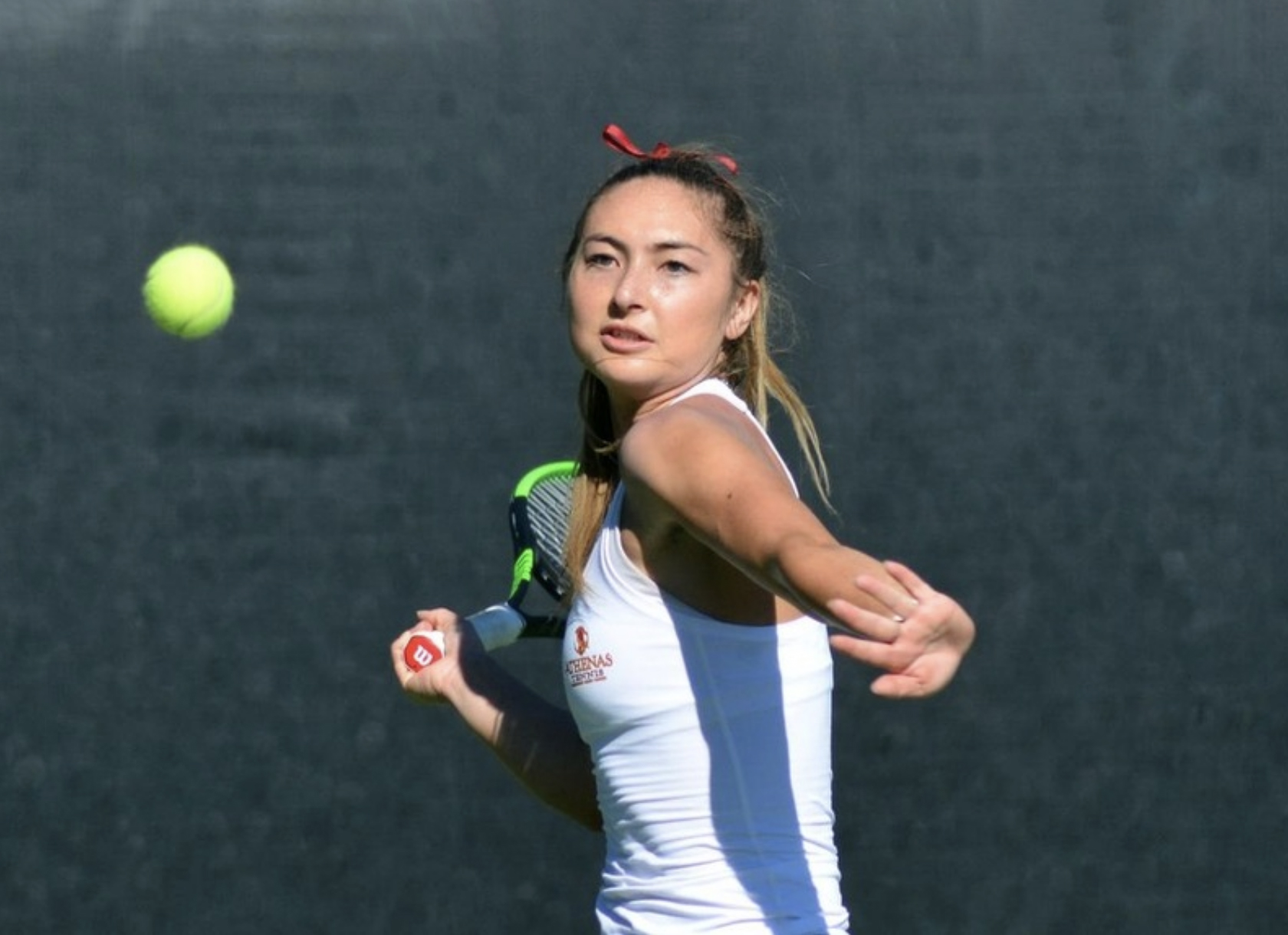
This past January, Catherine Allen ’20 attended the 2020 NCAA Immersion Program, which brought 40 minority Division III (D-III) student athletes from across the country to the NCAA Conference. The program aimed to expose students to the business aspect of the organization, provide education on the process of working in athletic administration, and define and embrace the qualities of young future leaders.
“The biggest takeaway from the conference was how to recognize and utilize our individual strengths and personality traits in a social business setting,” Allen reflects. “As post-graduation student athletes, we have the opportunity to combine the knowledge of a solid education with our consistent exposure to working with others to achieve a common goal.”
Allen’s participation in the NCAA Immersion Program was a highlight of her time at Scripps, but it was one among many accolades she has garnered during her college career. Since 2017, she has been a member of the Student Athlete Advisory Committee, representing Claremont-Mudd-Scripps (CMS) Women’s Tennis and advocating for the needs of Scripps student athletes. On the court, she competed and represented CMS in the 2016 Fall ITA Regional Tournament after transferring from another D-III school and won the 2018 NCAA Team Championship for the first time in CMS program history. To add to her list of accolades, Allen won the 2019 NCAA Doubles Championship title, back-to-back Fall ITA Doubles Championships in 2018 and 2019, and the 2020 Indoor Team National Championship, which placed CMS as the #1 ranked team for the 2019–2020 season. For the past two years, she was nationally ranked #1 in doubles and #2 in singles.
Now Allen has taken all that she has experienced and is studying it from an academic perspective. Inspired by her time as an NCAA athlete, as well as recent lawsuits surrounding college athletics, she just completed her senior thesis, which analyzes the transition of historical racism in the U.S. to institutional exploitation by a dominant sports organization and the impact it has on successful student athletes.
“The study’s conclusions revealed that less than two percent of college athletes become professionals in each sport,” Allen says. “The majority of college basketball and football is dominated by a Black roster; yet, there is an incredibly low four-year graduation rate for Black male basketball and football players, revealing a lack of emphasis on adequate education and social inclusion.” This lack of education leads to grim post-graduation career prospects for these students, which Allen suggests could be addressed through a requirement for higher GPA standards and graduation quotas for teams to participate in NCAA Championships—the highest revenue-generating event for the NCAA.
Following graduation, the legal studies major, with a concentration in race and law, plans to work from inside the sports world to begin to rectify these historical and ongoing injustices. She is leaning toward graduate studies in sports management to pursue a path in working in athletic administration.
“The Scripps curriculum and environment provided me with the liberal arts education that enabled me to cultivate my own personal values and strengths,” Allen says. “I contributed these strengths and values to my role as a leader on my CMS team and hope to continue that work with athletes across the country.”

